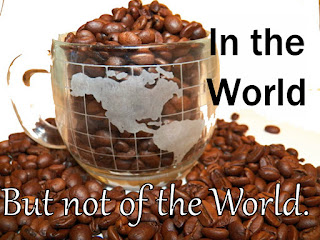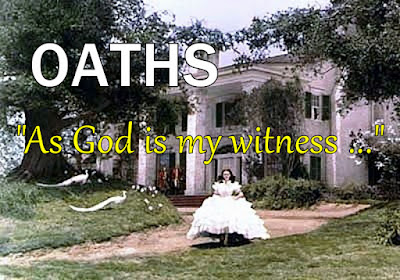TEAM JESUS, Part Three: TAKING ONE FOR THE TEAM
 Mark 8:31-38
Mark 8:31-38
I Corinthians 9:19-27
For God so loved ...
So loved us, a flawed and disobedient people,
That He sent to us His only Son,
Unique, like nothing ever seen before or since,
Christ, God who put our humanity,
Was offered up as a sacrifice
For us.
For Christ, God incarnate who pitched his tent among us,
So loved us ..
Christ, valuing our salvation
And the redemption of all creation
Over the the glory of his Godness
Came in the guise of a servant --
No, lower than a servant, a slave,
Being Obedient even to the giving of his life,
He sacrificed himself upon a cross.
For us.
It seems to me that sacrifice has more to do with love than with anything else.
Jesus took one for the "team," for us, for all people, everywhere. So, how do we respond to such love?
See the player in the middle of the picture? I'm not sure what exactly is going on, but, man, that has got to hurt!!
It looks to me like a classic example of what "taking one for the team" means. The player chooses to lay aside concern for his personal safety for the sake of his team ultimately winning the game. Likewise, in baseball, a sacrifice fly is when a player bunts the ball, probably incurring an out for him/herself, so another another player can advance to the next base.
"Taking one for the team" is sacrificing something for the sake of someone or something else, and it's not always pleasant nor is it easy. Remember Jesus in the Garden of Gethsemane? He was in such anguish over choosing to sacrifice his life for us that it's written that he cried tears of blood. (Luke 22:39-46)
Sacrifice can be a response of love. In the short story, "The Gift" by O'Henry, a young, struggling couple each sells what is most precious to them to buy a Christmas gift for the other.
Parents make sacrifices for their children so they can go to college or have a better life than they have.
In the natural world, when there is a food shortage, Pelicans will pluck the feathers from their breasts and open wounds so their children can feed on their blood rather than starve.
God, our heavenly parent, so loves us that He sacrificed His son, Jesus Christ, so that we could have eternal life and experience abundant life in the here and now. (John 3:16, 10:10) The blood of Christ is a sacrifice that takes away our sins and gifts us with forgiveness. (Ephesians 1:7)
Sacrifice can also be a response to love. In the Book of Ruth, Ruth, who experienced the love of her mother-in-law, Naomi, choose to sacrifice a life of comfort and safety in her homeland to travel and care for her. Ruth makes this promise to Naomi:
"Where you go, I will go; where you lodge, I will lodge; your people shall be my people, and your God my God. Where you die, I will die -- there will I be buried." (Ruth 1:16-17)
In response to their parents' love, adult children may become their parent's caretakers, and that does involve making sacrifices. A dear friend and colleague has recently given up her ministry in Iowa to transfer to another Annual Conference so she is can help take care of her aging parents.
Denying ourselves and taking up our cross is not an onerous duty nor is it stoically carrying our problems and challenges. Rather, it is a response to Christ's love. Because he first loved us, we love. (I John 4:19) We love Christ in return, we love one another and those Christ loves, and we serve as he served us and all humanity.
Denying ourselves is giving up anything we selfishly love more than Christ and others. It's giving up those things that hinder us growing in our love for God and neighbor and prevent us from becoming like Jesus. While it is hard to do (the truest acts of sacrifice are) sacrificial living does have amazing consequences that reach beyond our own lives.
George Bailey, in the movie, "It's a Wonderful Life," struggles with the sacrifices he's had to make. He become deaf in one ear when he jumped into an icy pond to save his brother's life. However, because he did, Harry lived to save the lives of many people during World War II.
Hardest of all was giving up his dreams of traveling the world and building skyscrapers to run Bailey Brothers Building and Loan Association after his father died. Yet, because he did, the quality of life for many in Bedford Falls was greatly improved.
The positive consequences of taking up our cross to follow Jesus are far greater than the price we pay for our sacrifices. Paul understood that.
Because sports were a big deal, even in his time, Paul described taking up his cross like an athlete who makes sacrifices to train to be the best. It requires discipline, a clear sense of purpose and being intentional -- everyday, no matter what, the winning athlete trains, builds strength and endurance and pushes himself or herself beyond their natural limits.
Paul did the same thing as he daily practiced spiritual disciplines that built spiritual strength and endurance and pushed himself outside of his comfort zone to serve Christ. As Christians, our daily training regimen includes worship, prayer, study and service.
Paul did so because he understood what was at stake. We strive not for trophies and medals but for an eternal prize -- salvation, which is not just an "event" but a life-long process, Why would we want to hinder that process or grow stagnant instead of living the life God created us for?
Jesus also said we deny ourselves and take up the cross for the sake of the Gospel. It's not just all about us. It's about God's plan for redemption of the world and the salvation of all human kind. People right outside our doors in this community are dying physically, emotionally and spiritually for want of the good news of Jesus Christ. They desperately need us to pick up our cross and head out the doors to share Christ with them, even when it's hard and uncomfortable.
Sacrifice is laying down that which hinders us from loving God and others as we have been loved and taking up those things that free us to be the people God calls us to be for the sake of others.
Sacrifice is both a response of love and a response to the love we receive from God. Sometimes it is unpleasant and painful, but the consequences of our willingness to make those sacrifices go far beyond what we can imagine.
Like George Bailey, we will discover that those sacrifices shape our lives and who we are as the people of God. They give our lives meaning and purpose. As George did, we'll see that our sacrifices for the sake of the Gospel will result in a much greater good. Our lives make a difference when we take up the cross of Jesus.
So, what is preventing us from taking up our crosses? Are our hands open and empty or have we closed our fists around our selfish wants and desires? Are we afraid of what we imagine lies beyond the borders of our comfort zones?
Today, let's lay it all at the feet of Jesus, so we can be freed to pick up our cross and experience the blessings of Christ's transforming love in ourselves and in the lives of all we meet.
See the player in the middle of the picture? I'm not sure what exactly is going on, but, man, that has got to hurt!!
It looks to me like a classic example of what "taking one for the team" means. The player chooses to lay aside concern for his personal safety for the sake of his team ultimately winning the game. Likewise, in baseball, a sacrifice fly is when a player bunts the ball, probably incurring an out for him/herself, so another another player can advance to the next base.
"Taking one for the team" is sacrificing something for the sake of someone or something else, and it's not always pleasant nor is it easy. Remember Jesus in the Garden of Gethsemane? He was in such anguish over choosing to sacrifice his life for us that it's written that he cried tears of blood. (Luke 22:39-46)
Sacrifice can be a response of love. In the short story, "The Gift" by O'Henry, a young, struggling couple each sells what is most precious to them to buy a Christmas gift for the other.
Parents make sacrifices for their children so they can go to college or have a better life than they have.
In the natural world, when there is a food shortage, Pelicans will pluck the feathers from their breasts and open wounds so their children can feed on their blood rather than starve.
God, our heavenly parent, so loves us that He sacrificed His son, Jesus Christ, so that we could have eternal life and experience abundant life in the here and now. (John 3:16, 10:10) The blood of Christ is a sacrifice that takes away our sins and gifts us with forgiveness. (Ephesians 1:7)
Sacrifice can also be a response to love. In the Book of Ruth, Ruth, who experienced the love of her mother-in-law, Naomi, choose to sacrifice a life of comfort and safety in her homeland to travel and care for her. Ruth makes this promise to Naomi:
"Where you go, I will go; where you lodge, I will lodge; your people shall be my people, and your God my God. Where you die, I will die -- there will I be buried." (Ruth 1:16-17)
In response to their parents' love, adult children may become their parent's caretakers, and that does involve making sacrifices. A dear friend and colleague has recently given up her ministry in Iowa to transfer to another Annual Conference so she is can help take care of her aging parents.
Denying ourselves and taking up our cross is not an onerous duty nor is it stoically carrying our problems and challenges. Rather, it is a response to Christ's love. Because he first loved us, we love. (I John 4:19) We love Christ in return, we love one another and those Christ loves, and we serve as he served us and all humanity.
Denying ourselves is giving up anything we selfishly love more than Christ and others. It's giving up those things that hinder us growing in our love for God and neighbor and prevent us from becoming like Jesus. While it is hard to do (the truest acts of sacrifice are) sacrificial living does have amazing consequences that reach beyond our own lives.
George Bailey, in the movie, "It's a Wonderful Life," struggles with the sacrifices he's had to make. He become deaf in one ear when he jumped into an icy pond to save his brother's life. However, because he did, Harry lived to save the lives of many people during World War II.
Hardest of all was giving up his dreams of traveling the world and building skyscrapers to run Bailey Brothers Building and Loan Association after his father died. Yet, because he did, the quality of life for many in Bedford Falls was greatly improved.
The positive consequences of taking up our cross to follow Jesus are far greater than the price we pay for our sacrifices. Paul understood that.
Because sports were a big deal, even in his time, Paul described taking up his cross like an athlete who makes sacrifices to train to be the best. It requires discipline, a clear sense of purpose and being intentional -- everyday, no matter what, the winning athlete trains, builds strength and endurance and pushes himself or herself beyond their natural limits.
Paul did the same thing as he daily practiced spiritual disciplines that built spiritual strength and endurance and pushed himself outside of his comfort zone to serve Christ. As Christians, our daily training regimen includes worship, prayer, study and service.
Paul did so because he understood what was at stake. We strive not for trophies and medals but for an eternal prize -- salvation, which is not just an "event" but a life-long process, Why would we want to hinder that process or grow stagnant instead of living the life God created us for?
Jesus also said we deny ourselves and take up the cross for the sake of the Gospel. It's not just all about us. It's about God's plan for redemption of the world and the salvation of all human kind. People right outside our doors in this community are dying physically, emotionally and spiritually for want of the good news of Jesus Christ. They desperately need us to pick up our cross and head out the doors to share Christ with them, even when it's hard and uncomfortable.
Sacrifice is laying down that which hinders us from loving God and others as we have been loved and taking up those things that free us to be the people God calls us to be for the sake of others.
Sacrifice is both a response of love and a response to the love we receive from God. Sometimes it is unpleasant and painful, but the consequences of our willingness to make those sacrifices go far beyond what we can imagine.
Like George Bailey, we will discover that those sacrifices shape our lives and who we are as the people of God. They give our lives meaning and purpose. As George did, we'll see that our sacrifices for the sake of the Gospel will result in a much greater good. Our lives make a difference when we take up the cross of Jesus.
So, what is preventing us from taking up our crosses? Are our hands open and empty or have we closed our fists around our selfish wants and desires? Are we afraid of what we imagine lies beyond the borders of our comfort zones?
Today, let's lay it all at the feet of Jesus, so we can be freed to pick up our cross and experience the blessings of Christ's transforming love in ourselves and in the lives of all we meet.



Comments
Post a Comment